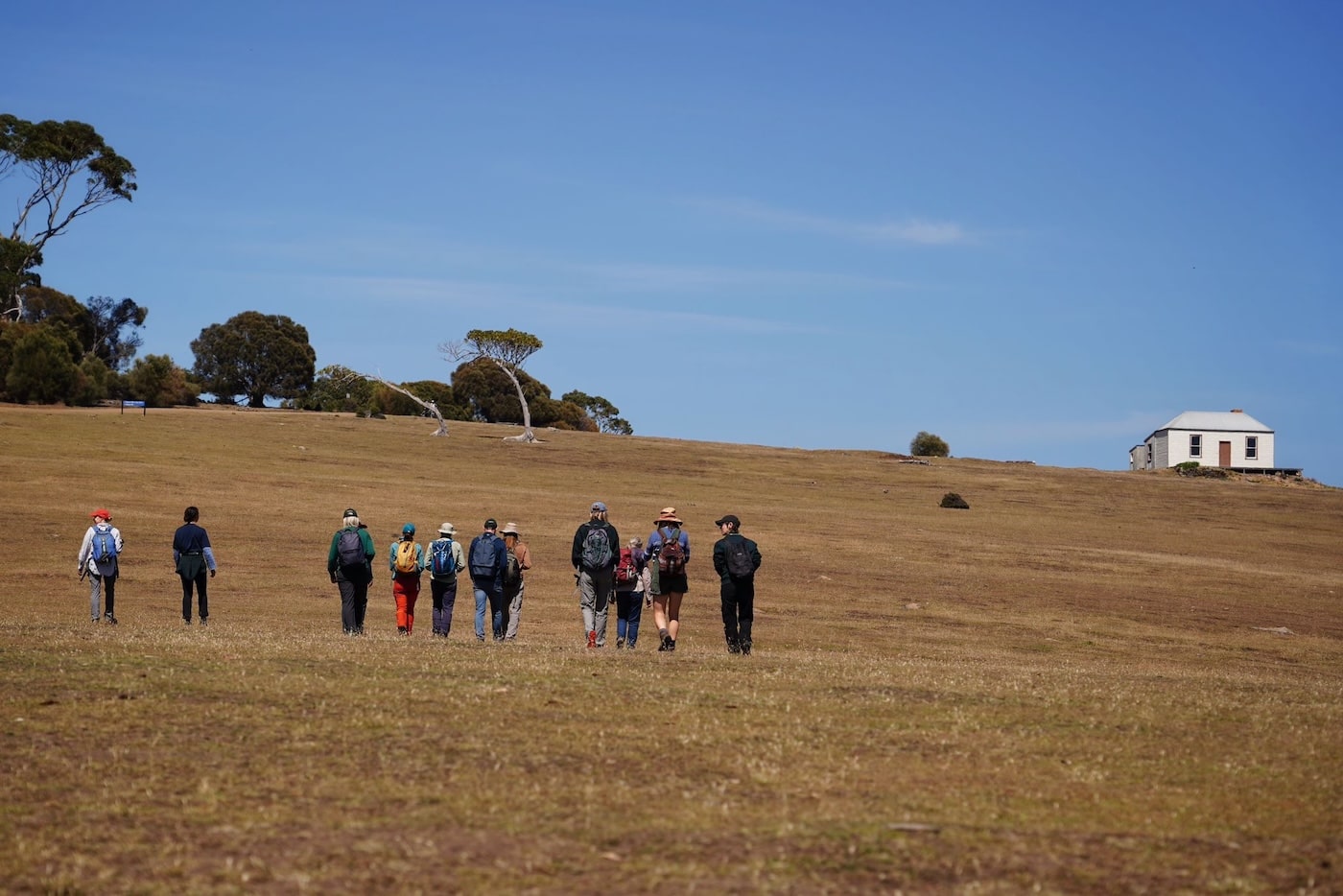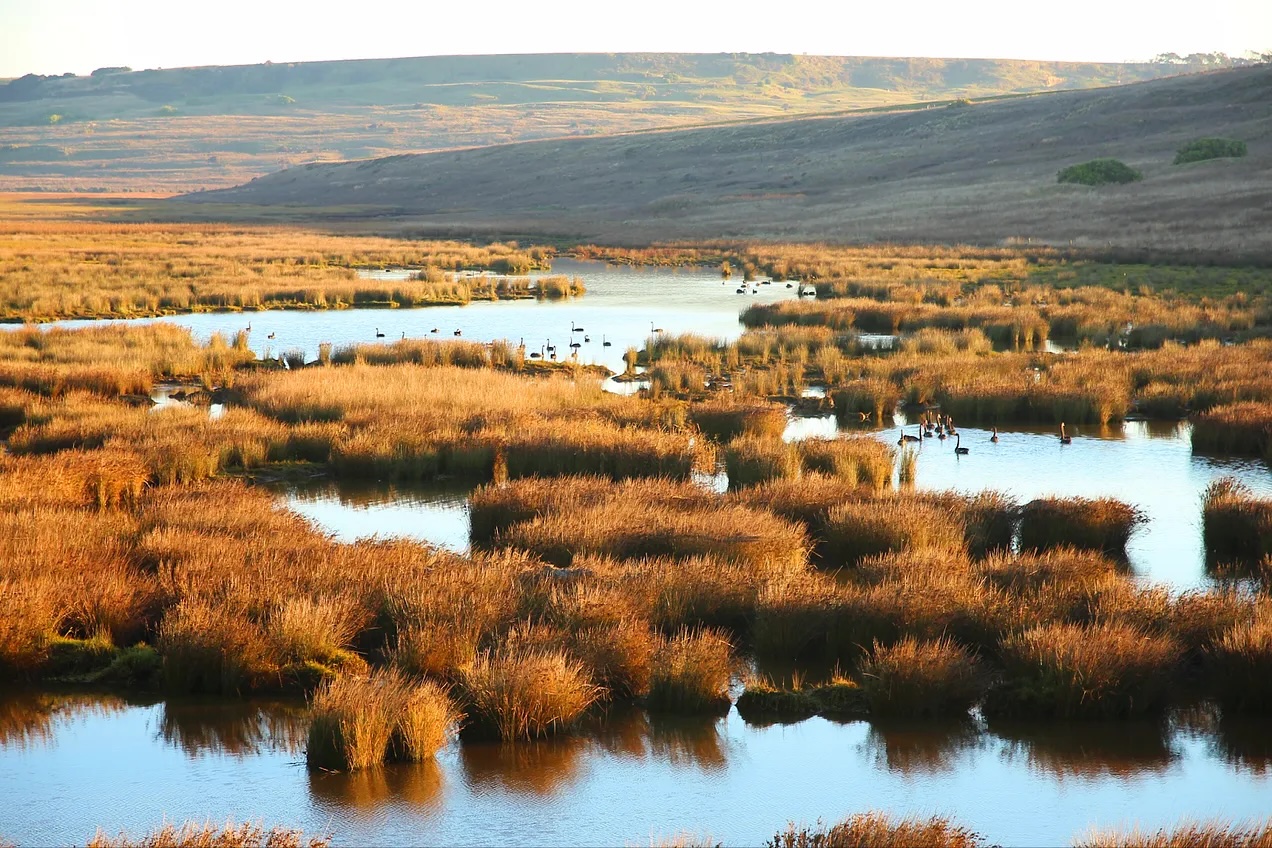In one of the world’s most unique ecosystems, rainforest conservation goes hand in hand with economic growth
La Sierra Nevada de Santa Marta, in the northernmost reaches of Colombia, is the highest coastal mountain range in the world. Here, snow-speckled mountains tumble swiftly into a rolling landscape of tropical rainforest and misted valleys, where rivers sweep into the Caribbean Sea.
This unique landscape, with its dramatic shift in altitude, is home to 70 species of birds that are only found here, as well as 17 endemic amphibians, including five species of harlequin toad. But this biodiversity stronghold is also under threat from mining, grazing, logging, industrialised agriculture and ever-encroaching urbanisation.
According to the Rainforest Trust, less than 15% of the Sierra Nevada de Santa Marta’s original highland forest remains intact.
Extractive business models are responsible for the degradation of this landscape. But, Team TAP is proving that the inverse is true too: regenerative business models are key to protecting this rainforest ecosystem.

In the simplest sense, Team TAP is a producer, trader and exporter of coffee, cacao and (more recently) macadamia nuts. But, this falls short of capturing the organisations’ breadth and mission.
“Team TAP is not just a commodity trader. We’re focused on education, sustainability, social wellbeing and conservation in the communities in which we work,” founder and CEO Camilo Arguello explains.
“The main mission is to generate social benefits to the community, and to create value chains that are sustainable for the environment and for the producers.”
Today, the team works directly with 215 producers, as well as a range of other cooperatives throughout Colombia, to export green coffee to the EU, the UK, Japan, South Korea, the US and Canada. But this is just the beginning.
In addition, Team TAP is working with remote farming communities Indigenous populations and Colombian universities to establish sustainable farming models that provide economic opportunities while protecting the region’s unique biodiversity.
At the core of everything Team TAP does is the notion that the economic development of a community and a region’s biodiversity are both key determining factors in quality of life for all.
This belief also underpins Wedgetail’s Nature-Linked Loans, of which Team TAP is a recipient.
Wedgetail invests at the intersection of nature, business and livelihoods, because land can only be truly protected when those who live, work and derive their livelihoods from it are actively securing its future.

Shady crops and tasty coffee
Team TAP boasts all manner of organic, conservation and fair-trade certifications. It is also working with the first bird-friendly-certified cacao producers in Colombia. But that’s just paperwork. The proof, Camilo says, is in the 5,000 hectares of dry tropical rainforest protected by the farmers and communities he works with.
“Biodiversity is very important to coffee production, in particular,” he explains.
“Approximately 70% of the farms Team TAP works with are mostly shaded. That’s very high in comparison to some other coffee-growing regions in Colombia, where there is more monoculture.”
Biodiversity means nutrient-rich soil and no need for non-organic fertilisers or pesticides. It also creates a candy shop for native insects, which go on to pollinate surrounding fruit trees and feed the all-important birdlife.
It’s also a haven for bees (famously super-pollinators), and for a few months now, Team TAP has been harvesting honey from its own beehives, and selling it locally — a bonus source of income for landowners.
All of this, of course, benefits the coffee drinker, too.
“The shade creates a more complex flavour profile — it’s softer, more subtle, and more interesting,” he says.

Unlocking ‘productive potential’
Misael Angulo is the technical coordinator at Team TAP, and works closely with communities throughout Santa Marta.
With funding from Wedgetail combined with expertise from Colombian universities and local elders, Team TAP is able to analyse the ‘productive potential’ of these communities.
“We’re helping to regenerate areas that have been degraded through cattle farming or other uses,” Camilo says.
Specifically, the team will put forward a proposal for transitioning degraded pasture and cropland to biodiverse and resilient agroforestry systems that support local livelihoods and wildlife alike.
Agroforestry systems provide a swathe of benefits for nature and farmers alike, including, but not limited to, increasing soil organic matter, preventing soil erosion, improving water quality, buffering nearby forest ecosystems, providing additional food sources and sequestering carbon.
In a warming climate, agroforestry systems have the added benefit of buffering crops from temperature rises, as well as the damaging effects of wind, heat and heavy rains.
“There is not as much rainfall, which doesn’t really help the flowering of the coffee tree. And it’s hotter, which also affects the quality and flavour of the coffee,” Camilo says.
All of this helps to provide viable livelihoods for the next generation, tackling what Camilo says is another major challenge for these communities.
“It’s a delicate issue,” Camilo says. “We are ageing in the mountains. A lot of young people are moving to the cities; they don’t want to be on the farm producing coffee.”
Misael also leads Team TAP’s school-based programs, designed to get kids involved in planting saplings and helping them to grow; fostering a love and appreciation for the natural world around them, and introducing sustainable farming techniques that will hopefully support the community well into the future.
Every program Team TAP runs, whether with farmers or school kids, “is a joint effort,” Misael says.
“The objective is to link the education work to the research and the traditional knowledge. We understand the value of the knowledge of our elders, and we’re also bringing young people into the discussion, to help them understand the positive value in the land,” he adds.
“It’s very important for us to work with those people, to receive their endorsement and to learn from those who have much more experience of agriculture in the region than us.”

Preserving Indigenous livelihoods
Another community project in progress — one Camilo is particularly proud of — is a close collaboration with a group of 12 Indigenous Arhuaco women, which they expect to grow over time.
The women produce a range of traditional, artisan crafts — mainly woven bags — and Team TAP is creating a route to market, and with it, a long-term source of income.
Camilo is in the final stages of opening at least one physical store for these crafts and artworks, alongside coffee, cacao and honey.
“These are artisanal crafts that these women have been making for many, many years,” Camilo says.
“The stores will give them another way to create a better livelihood for themselves while showcasing ancient Indigenous skills.
“It’s really important to create livelihoods for these Indigenous communities because they have a long tradition of good conservation practices in the forest.
“They own this land and they have lived on this land for generations. So it’s very important to find ways to ensure they can stay on the land.”

A job that’s never done
If we’re strictly speaking business, Camilo’s long-term goal is to export not only green coffee but roasted and processed coffee beans, selling to cafes all over the world.
“We’re missing out on the additional value-add from the processing. In the long term we can sell coffee with that added value,” he explains.
If we’re dreaming big, he would also like to break into Shanghai, and the primarily tea-drinking Chinese market.
However, in terms of impact, Camilo is hoping to triple the number of hectares conserved under Team TAP’s programs in the Santa Marta region. He also wants to expand into Tolimo towards the south, with the lofty goal of preserving 5,000 hectares there, for a start.
Several times, Camilo stresses the importance of this mission; of preserving and restoring Colombia’s incredible biodiversity, while also preserving rural livelihoods that work with nature, not against it.
At the same time, he’s in no rush. The success he’s had so far, he attributes to his patience.
“Coffee takes about three years to produce from plants. Cacao takes four years, sometimes more. Macadamia takes six to eight years.”
The latter is a new crop for Team TAP.
“We hope to be exporting macadamia nuts in five years,” Camilo says.
“Patience has been a key driver for our success, which is shown simply by having so many buyers all over the world.”
The same goes for the environmental opportunity. Not only will reforestation not happen overnight, it will never truly be finished.
“It’s a cycle,” Camilo says.
“The funds for these projects are not coming from outside sources or NGOs. The business keeps investing to keep doing this. The more we grow, the more we invest, and the more impact we have.
“Our objective as an organisation is to improve the quality of life and conserve the natural environment in the regions where we are working. This is a permanent job.”



